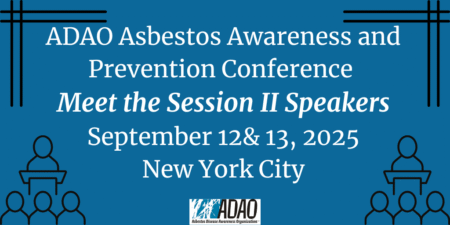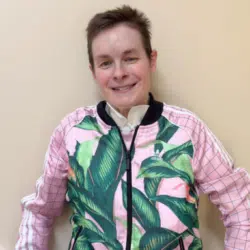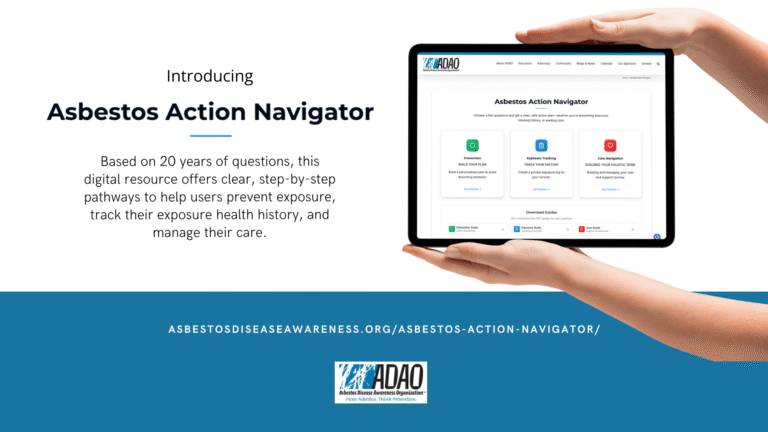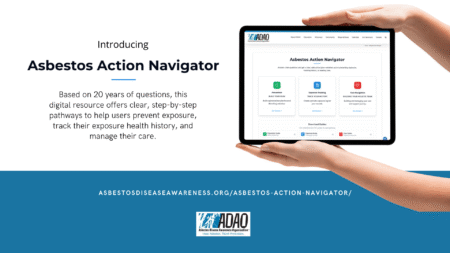“Meet the Speakers & Honorees” 7-Week Blog Series
ADAO is proud to launch our 2025 “Meet the Speakers & Honorees” blog 7-week series, celebrating the 20th International Asbestos Awareness and Prevention Conference—September 12–13, 2025, in New York City. Each week, we’ll spotlight the distinguished speakers, honorees, and ADAO leaders whose expertise, leadership, and dedication drive our mission forward and make this milestone event possible.
We are deeply grateful to these individuals and organizations for generously sharing their time, knowledge, and passion with our community. Their commitment to prevention and advocacy continues to inspire action and strengthen our shared fight to end asbestos-related disease.
Join us in New York City for this landmark event—register now to be part of the movement.
Speaker information for Session II: Understanding Asbestos Disease – Diagnosis, Treatment, and Disparities
Prasad Adusumilli, MD – Advancing Cancer Care: MSKCC Clinical Trials
Prasad Adusumilli, MD, is Vice Chair of Translational Research and Deputy Chief of Thoracic Surgery at Memorial Sloan Kettering Cancer Center, New York. Internationally recognized for his expertise in lung cancer and mesothelioma, he performs complex and minimally invasive surgeries, and is a leader in robotic bronchoscopy for advanced, image-guided biopsies.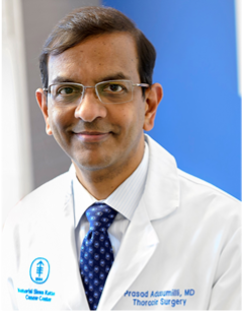
Dr. Adusumilli directs a cancer immunology laboratory focused on developing and translating new immunotherapies. Supported by NIH and Department of Defense grants, his team has analyzed samples from over 12,000 patients, advancing understanding of immune responses and resistance in thoracic cancers. His research pioneered insights into the role of immune cell infiltration, laying the foundation for immune modulation and novel therapies.
His group has developed solid tumor models and led clinical trials testing biological therapies, including chimeric antigen receptor (CAR) T cells, which have proven safe and effective for advanced cancers. Dr. Adusumilli’s work has informed combination immunotherapy strategies and contributed to international clinical guidelines.
He has mentored more than 150 scientists and physicians, published over 320 papers, and received over 100 research awards. Dr. Adusumilli is an elected member of the Fleischner Society, the American Society of Clinical Investigation, and the American Association for Thoracic Surgery.
Raja Flores, MD – Moderator and Basic Surgical Treatment for Asbestos-Related Diseases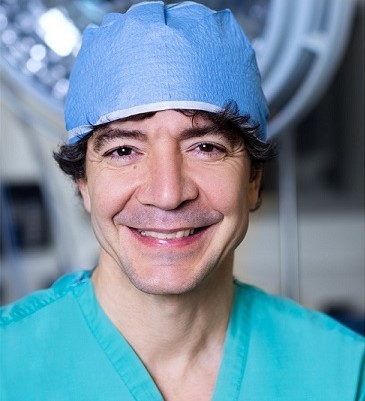
Raja M. Flores, MD, is the System Chair of the Department of Thoracic Surgery at Mount Sinai Health System and ADAO Science Advisory Board Co-Chair Member.
Raja is a recognized leader in the field of thoracic surgery for his pioneering efforts in the treatment of mesothelioma. Dr. Flores’ research interests include numerous past projects relating to the multimodality management of malignant pleural mesothelioma.
He helped pioneer the use of intraoperative chemotherapy for mesothelioma and led a multi-center trial designed to improve patient outcomes. He changed the surgical management of pleural mesothelioma cancer with a landmark study comparing extrapleural pneumonectomy and pleurectomy/decortication.
An expert in his field, Dr. Flores has appeared on many national and local television news reports to discuss mesothelioma. With over 300 related publications to date, his energies and commitment to the plight of mesothelioma patients remain paramount.
Arthur Frank, MD, PhD – Moderator
Arthur L. Frank, MD, PhD is a physician board certified in both internal medicine and occupational medicine and currently serves as a clinical Professor of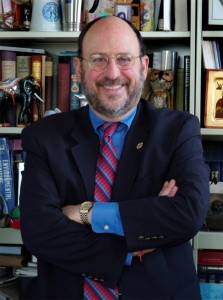
A life-long academic, Dr. Frank has previously taught at Mount Sinai, the University of Kentucky and in the University of Texas System. He has served many governmental agencies in the US and has carried out research and has been a governmental advisor internationally. He has been interested in the health hazards of asbestos for more than 50 years.
He has published extensively on the hazards of asbestos, and clinically cared for asbestos-affected patients. He has lectured internationally about the problems of asbestos and worked in many settings looking at the diseases caused by this material. His research interests have been in the areas of occupational cancers and occupational lung diseases, as well as agricultural safety and health.
For thirty-seven years, he held a commission in the U S Public Health Service (active and inactive) and served on active duty both at the NIH and at NIOSH.
Arthur is the ADAO Science Advisory Board Co-Chair.
Jorge Gomez, MD – Oncology: Progress Towards Curing the Incurable
Bio Coming Soon
Karen Grant – Personal Story
In January of 2004, at the age of 29, I was diagnosed with bi-lateral mesothelioma. I underwent aggressive surgery on each lung by the late Dr. David J.
Sugarbaker. In the beginning of January 2005, I overcame the odds. Sixteen years later, I was diagnosed with peritoneal mesothelioma. I live by two mottos: The first is “If you knew you couldn’t play tomorrow, how hard would you play today?” I live ever single day to the best of my ability. The second motto is “When you create, you feel alive.” I create something every day- be it a photo, spending time with my husband, Geoff, and our pet rabbit, Bella, family and friends or outside in nature.
Dr. Claudia Henschke – Early Detection of Libby Amphibole Disease: Radiological Insights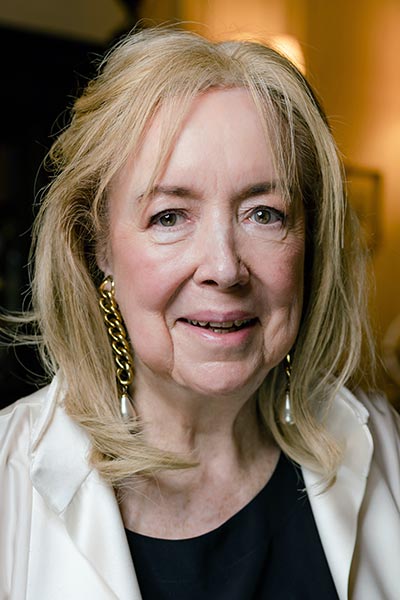
Dr. Claudia Henschke has achieved international acclaim as an innovator in thoracic radiology and as a crusader for the early detection of lung cancer, particularly among populations with previous asbestos exposure. As a principal investigator and driving force behind the development of low-dose computed tomography (CT) screening protocols, Henschke’s work has transformed cancer detection and prevention, dramatically improving prognosis for countless patients.
Starting her career during a time when lung cancer was often diagnosed far too late for effective intervention, Henschke championed the use of low-dose CT as a screening tool for high-risk groups. Her studies provided the evidence base needed to push for policy changes, including expanded access to regular screenings for workers in industries with known asbestos hazards. Through clinical trials and longitudinal research, she demonstrated that early identification of tumors dramatically increases survival rates and reduces the burden on healthcare systems.
Dr. Henschke has authored hundreds of peer-reviewed articles, delivered keynote lectures at global conferences, and advised government agencies on occupational health policy. Her leadership roles within major medical societies and international collaborations reflect a commitment to multidisciplinary approaches, integrating radiological advances with epidemiology, patient care, and public health education.
Beyond her technical contributions, Henschke is recognized for her mentorship of young physicians and researchers. She is an advocate for health equity, ensuring that screening technologies reach vulnerable and underserved populations, including former industrial workers, firefighters, and teachers. Her body of work stands as a cornerstone for comprehensive, science-based responses to the continued threat of asbestos-related cancers.
Steven Markowitz, MD, DrPH – Asbestos-related Diseases – Early Detection Matters
Steven Markowitz, MD, DrPH, is an occupational medicine physician and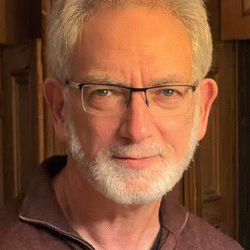
Jacqueline M. Moline, MD, MSc – Uncovering the Past: Exposure History in Science and Clinical Practice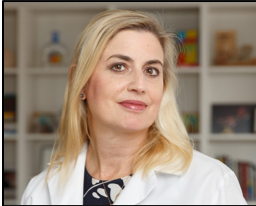
Jacqueline M. Moline, M.D., M.Sc. is an Occupational Medicine specialist and Professor of Occupational Medicine, Epidemiology and Prevention and Internal Medicine at Hofstra Northwell School of Medicine. She obtained her medical degree from the Pritzker School of Medicine of the University of Chicago. She completed residencies in Internal Medicine at Yale University and Occupational and Environmental Medicine at Mount Sinai School of Medicine, where she obtained her Masters of Science degree. She is the former Director of the NIOSH-funded New York/New Jersey Education and Research Center in Occupational Safety and Health.
After 19 years on the Mount Sinai School of Medicine faculty, she joined Northwell Health as the founding Chairperson of the Department of Occupational Medicine, Epidemiology and Prevention.
Dr. Moline maintains a clinical practice, focusing on patients with occupational exposures such as asbestos. Since 2001, many of Dr. Moline’s endeavors have been centered on the medical evaluation and treatment of World Trade Center (WTC) responders. While at Mount Sinai, she directed the WTC health program, which she now runs at Northwell Health in Queens, NY.
In 2010, Dr. Moline was the recipient of the Kehoe Award of Merit from the American College of Occupational and Environmental Medicine for significant contributions to research in the field of occupational and environmental medicine, and she has received numerous awards for her service to WTC responders.
Andrea Wolf, MD, MPH – Advancing Surgery: Mount Sinai’s Clinical Trial Innovations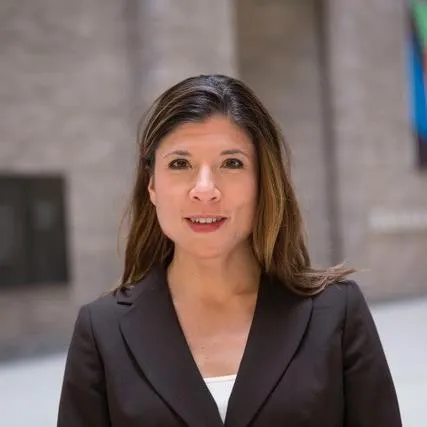
Andrea Wolf, MD, MPH, is Director of the NY Mesothelioma Program and Professor of Thoracic Surgery at the Icahn School of Medicine at Mount Sinai.
She graduated Cum Laude from Princeton and earned her MD and MPH from Harvard University, before training in general surgery at the Massachusetts General Hospital and cardiothoracic surgery at the Brigham and Women’s Hospital before assuming her current role as attending surgeon at Mount Sinai in New York.
She has expertise in surgery for pleural mesothelioma and VATS lobectomy and research interests in mesothelioma, health care disparities, and lung cancer. She is the Chair of the American Association for Thoracic Surgery Wellness Committee, and has served as medical director for 3 elite marathons, in which the women’s winner went to the Paris Olympics in 2024 and one man broke the Austrian National Record.
She and her team at the NY Mesothelioma Program received the 2020 International Association for the Study of Lung Cancer Care Team Award. The ADAO awarded Dr. Wolf the Irving J. Selikoff Award in 2022.
She has presented at numerous national and international meetings, is co-editor of the third and upcoming fourth editions of Sugarbaker’s Adult Chest Surgery and has published extensively on pleural mesothelioma and lung cancer. She has one son and loves to run.
David Yankelevitz, MD – Early Detection of Libby Amphibole Disease: Radiological Insights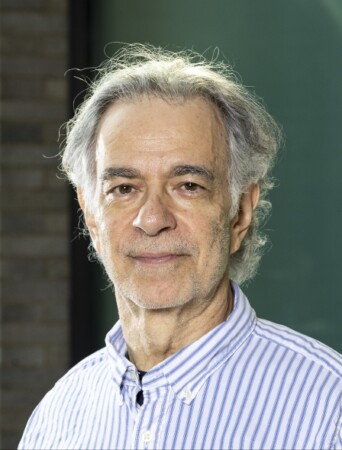
A close collaborator of Dr. Henschke, Dr. David Yankelevitz has carved a distinguished career as an expert in thoracic imaging. He is credited with key advances in the early identification and characterization of lung nodules, contributing decisively to the shift towards proactive lung cancer management in individuals exposed to asbestos and other carcinogens.
Yankelevitz’s research agenda focuses on the optimization of imaging protocols to minimize false positives, maximize early detection, and personalize patient care. His commitment to refining diagnostic processes has resulted in new clinical guidelines that are now standard practice in hospitals and screening centers worldwide.
Like Henschke, Yankelevitz balances scientific innovation with public education, helping policymakers and communities understand the importance and practicalities of low-dose CT screening. His collaborative work on large-scale screening initiatives—impacting countless at-risk individuals—has informed public health messaging and influenced insurance coverage decisions in the United States and abroad.
Yankelevitz is lauded for his efforts to bridge the gap between radiological science and patient needs, serving as a communicator, educator, and advocate whose influence shapes both the research agenda and lives of patients facing asbestos-induced disease.

